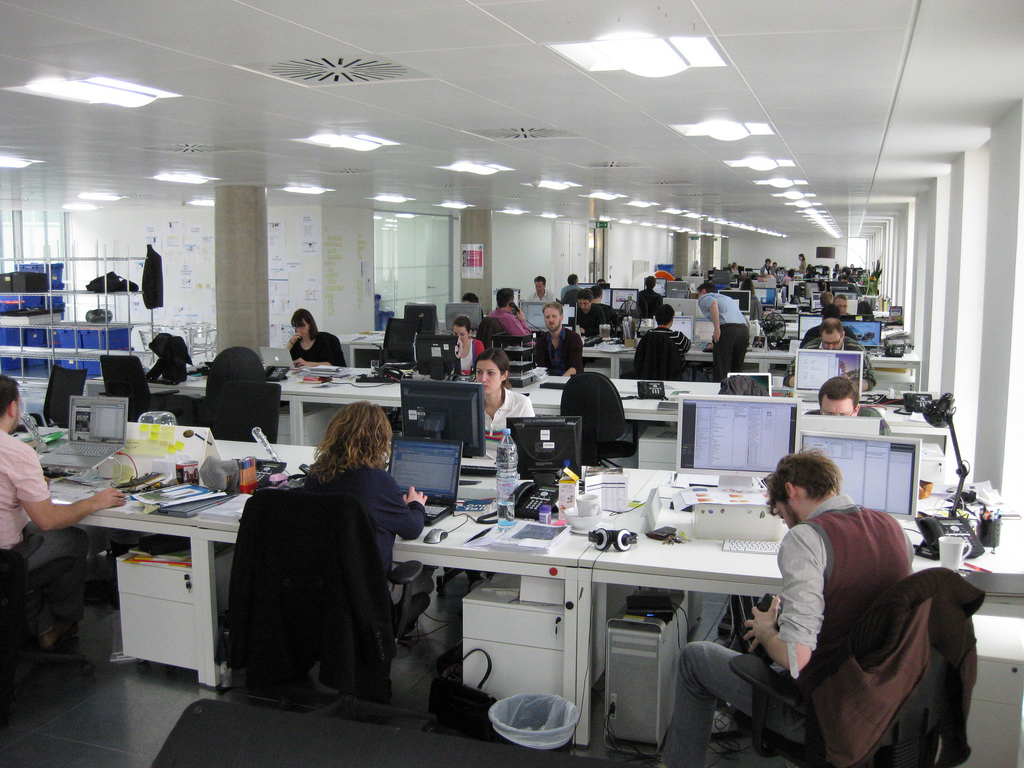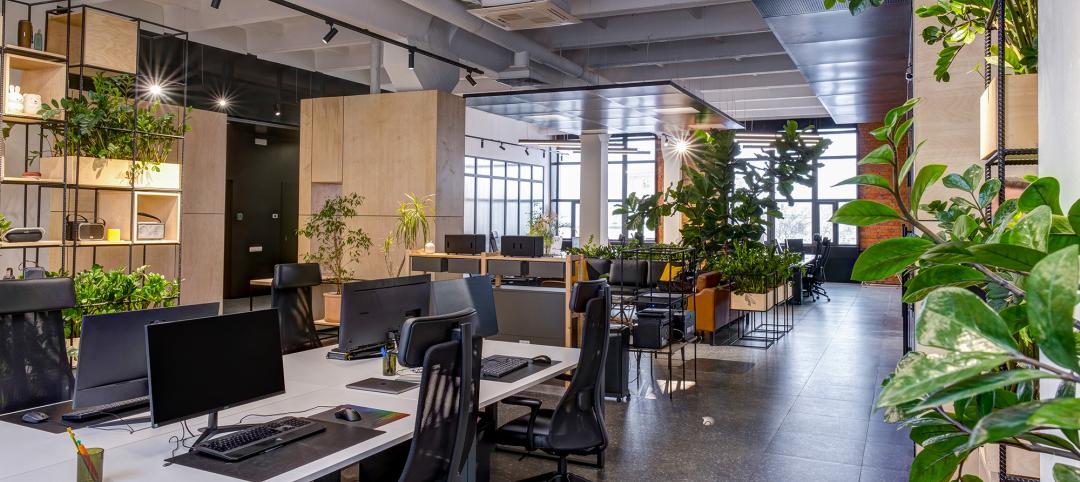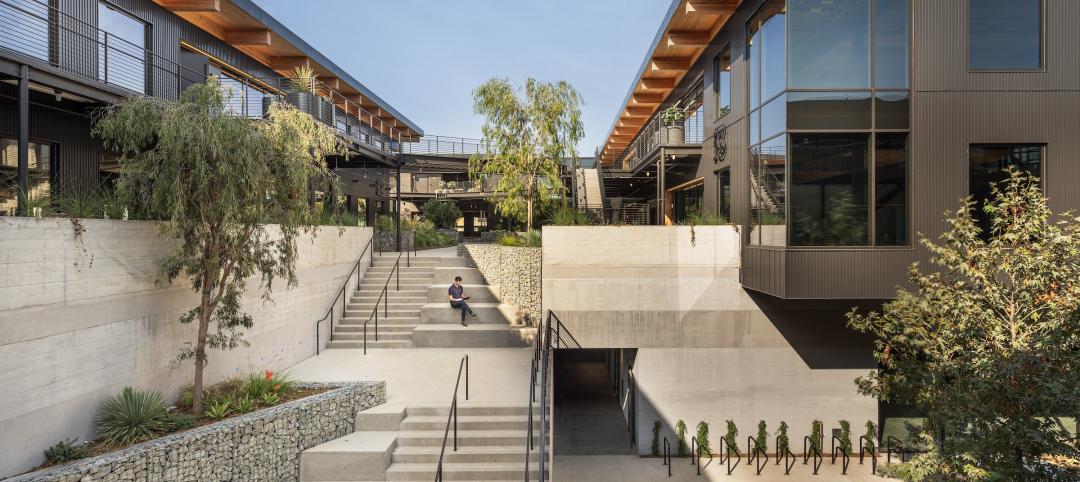Millennials are impacting the built environment under construction in 2015, according to a report from JLL tracking national construction trends. Throughout 2015, tenant improvement (TI)—or the renovation of existing space—has been a bright spot in the construction industry, even as labor and construction costs continue to rise.
There has been a 14.2% rise in TI projects since the second quarter of 2013, as landlords compete to attract tenants and companies compete for Millennial talent. This is especially prevalent in office markets that are saturated with new construction and renovation.
According to JLL’s latest report on U.S. non-residential construction activity, TI costs are declining in most key markets, as landlords are more willing to pay for them. For office building owners, the average TI package nationwide is approximately $30-$50 per-sf in Central Business Districts (CBDs). These packages have become especially important as tenants look to customize office space to attract and retain employees, especially Millennials.
“Millennials are shaping how and where we work, and also how and where we shop, and even the path our packages take from ship to doorstep,” said Todd Burns, President, JLL Project and Development Services, Americas. “By 2020, the U.S. workforce will be comprised of 50% Millennials. Individually, they may not realize that they’re influencing national construction trends to favor tenant improvement over new construction, but the numbers show it’s no coincidence.”
Companies are focused on accommodating their Millennial employees and their preference for offices in existing urban locations that are close to amenities and often with unique, open interior spaces. As a result, as companies begin to renovate older buildings, office space vacancies are slowly declining and are down 10.2% since Q2 2011.

The JLL research also points to other key construction industry trends playing out in 2015 including:
• Rethinking the retail environment: New “omnichannel” strategies emphasize convenience for customers by leveraging their brick-and-mortar stores as e-commerce pick-up/return depots, which in turn requires a revamped store configuration.
• Manufacturing industry driving construction volume: While construction in the education sector has been strong as universities focus on building new space to keep students engaged on campus, it’s been upstaged by a surprising category: manufacturing. Annual project spend on construction within the manufacturing sector has increased from $57.8 billion in 2014 to $90.3 billion YTD in 2015.
• Technology leads the charge: Technology companies are driving demand for cool, renovated office space. At the same time, industrial occupiers want and need, more custom e-commerce space, with higher shelving, specialized lighting, new technology and office space. Similarly, in retail, quick service restaurant chains are investing in new, creative interior build-outs to better compete with fast casual concepts.
• Future opportunity and capital planning: With construction starts at their highest point since the recession, the industry is still in the early stages of its recovery and will continue to grow in response to overall economic growth. Activity is still far below pre-recession highs, indicating growth will continue over the next several years, and dollar value of TI allowances will too.
Related Stories
Office Buildings | Oct 29, 2024
Editorial call for Office Building project case studies
BD+C editors are looking to feature a roundup of office building projects for 2024, including office-to-residential conversions. Deadline for submission: December 6, 2024.
Office Buildings | Oct 21, 2024
3 surprises impacting the return to the office
This blog series exploring Gensler's Workplace Survey shows the top three surprises uncovered in the return to the office.
Sustainable Design and Construction | Oct 10, 2024
Northglenn, a Denver suburb, opens a net zero, all-electric city hall with a mass timber structure
Northglenn, Colo., a Denver suburb, has opened the new Northglenn City Hall—a net zero, fully electric building with a mass timber structure. The 32,600-sf, $33.7 million building houses 60 city staffers. Designed by Anderson Mason Dale Architects, Northglenn City Hall is set to become the first municipal building in Colorado, and one of the first in the country, to achieve the Core certification: a green building rating system overseen by the International Living Future Institute.
MFPRO+ News | Oct 9, 2024
San Francisco unveils guidelines to streamline office-to-residential conversions
The San Francisco Department of Building Inspection announced a series of new building code guidelines clarifying adaptive reuse code provisions and exceptions for converting office-to-residential buildings. Developed in response to the Commercial to Residential Adaptive Reuse program established in July 2023, the guidelines aim to increase the viability of converting underutilized office buildings into housing by reducing regulatory barriers in specific zoning districts downtown.
The Changing Built Environment | Sep 23, 2024
Half-century real estate data shows top cities for multifamily housing, self-storage, and more
Research platform StorageCafe has conducted an analysis of U.S. real estate activity from 1980 to 2023, focusing on six major sectors: single-family, multifamily, industrial, office, retail, and self-storage.
Government Buildings | Sep 17, 2024
OSHA’s proposed heat standard published in Federal Register
The Occupational Safety and Health Administration (OSHA) has published a proposed standard addressing heat illness in outdoor and indoor settings in the Federal Register. The proposed rule would require employers to evaluate workplaces and implement controls to mitigate exposure to heat through engineering and administrative controls, training, effective communication, and other measures.
Mass Timber | Sep 17, 2024
Marina del Rey mixed-use development is L.A.’s largest mass timber project
An office-retail project in Marina del Rey is Los Angeles’ largest mass timber project to date. Encompassing about 3 acres, the 42XX campus consists of three low-rise buildings that seamlessly connect with exterior walkways and stairways. The development provides 151,000 sf of office space and 1,500 sf of retail space.
Office Buildings | Sep 16, 2024
Maximizing office square footage through ‘agile planning’
Lauren Elliott, RID, NCIDQ, Director of Interior Design, Design Collaborative, shares tips for a designing with a popular and flexible workspace model: Agile planning.
Adaptive Reuse | Sep 12, 2024
White paper on office-to-residential conversions released by IAPMO
IAPMO has published a new white paper titled “Adaptive Reuse: Converting Offices to Multi-Residential Family,” a comprehensive analysis of addressing housing shortages through the conversion of office spaces into residential units.
Office Buildings | Sep 6, 2024
Fact sheet outlines benefits, challenges of thermal energy storage for commercial buildings
A U.S. Dept. of Energy document discusses the benefits and challenges of thermal energy storage for commercial buildings. The document explains how the various types of thermal energy storage technologies work, where their installation is most beneficial, and some practical considerations around installations.

















